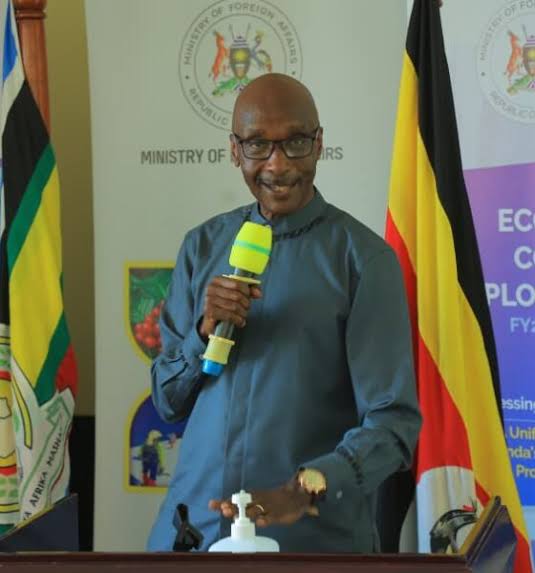
Former Inspector General of Police, Gen. Kale Kayihura (Rtd.), has told Ugandan ambassadors that the country’s stability depends as much on diplomacy as it does on military might. Speaking in Gulu at the Annual Ambassadors’ Conference, where he represented Chief of Defence Forces Gen. Muhoozi Kainerugaba, Kayihura stressed the importance of closer coordination between soldiers and diplomats in securing Uganda’s future.
Kayihura said military power alone cannot guarantee long-term peace, warning that borders may be defended by guns, but nations are held together through dialogue. “War and diplomacy are intertwined together they safeguard Uganda,” he told the gathering, encouraging envoys to see themselves as partners in national security.
He cited Uganda’s history with neighbouring Rwanda as an example, noting that tensions were ultimately eased through negotiation rather than open conflict. “Where diplomacy steps in, nations find solutions that guns cannot provide,” he added.
The retired general pointed to international precedents, from post–World War II alliances to modern peacekeeping operations, as proof that countries thrive when their diplomatic corps and defence establishments act in unity. He contrasted this with countries like Sudan, where failure to balance military and political dialogue has fuelled instability.
“Where this partnership thrives, peace and prosperity follow. Where it fails, the results are catastrophic,” Kayihura observed.
Kayihura reminded ambassadors of Uganda’s heavy investment in peace missions, including the deployment of thousands of troops to Somalia under the African Union. He said these missions have only been possible because diplomats worked alongside the army to secure international backing and resources.
“Our military engagements abroad would not succeed without the diplomatic groundwork that ensures legitimacy and support,” he said, highlighting how the two arms of government must remain aligned.
Kayihura urged the creation of stronger institutional links between the Ministry of Foreign Affairs and the Uganda People’s Defence Forces. He called for more training of soldiers in diplomacy and wider posting of military attachés in missions abroad.
“Unity of purpose, professional competence, and civil-military cooperation remain the keys to Uganda’s resilience,” he stressed.
He closed with a rallying call: “In war: resolution. In defeat: defiance. In victory: magnanimity. In peace: goodwill.”